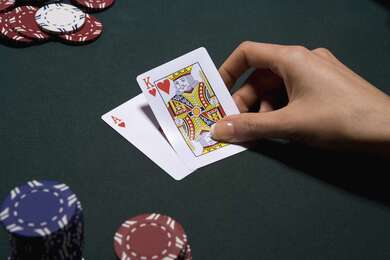
How to play Chinese poker
Among the numerous variations of poker, one variant stands out with its unique gameplay and thrilling challenges – Chinese Poker. A blend of strategy, intuition, and pure card sense, it offers poker enthusiasts a refreshing take on their beloved game.
What is Chinese Poker?
At its core, Chinese Poker is a card game that transcends the usual poker dynamics. Rather than betting and bluffing, it emphasizes creating three separate poker hands. With its origins in Asia, it has swiftly gained popularity worldwide for its strategic depth and pace.
Chinese Poker Rules
- Players: Typically played with 2-4 players.
- Objective: Each player needs to create three hands with the 13 cards dealt to them.
- The Three Hands: These are categorized as the ‘top’ (3 cards), ‘middle’ (5 cards), and ‘bottom’ (5 cards) hands. The strength of the hands should be in increasing order from top to bottom.
Dealing Cards and Filling Boxes
- Dealing: Each player is dealt 13 cards.
- Arranging: Players then divide these 13 cards into the three aforementioned hands.
- Revealing: Once arranged, players reveal their hands. Comparison starts from the top hand and proceeds downward.
Differences between Pineapple and Classic Chinese Poker
While the essence remains similar, Pineapple Chinese Poker introduces new dynamics:
- Dealing: Players start with 5 cards and then draw in sets of 3, choosing 2 to play and discarding 1.
- Rounds: The game consists of more rounds, typically played until every player has acted as dealer at least once.

Fantasy
In some variations, if a player achieves a certain hand strength, they enter a ‘Fantasyland’. Here, they receive all 13 cards face-down at once in the next hand. This offers a significant advantage as they can strategize without the usual sequential restrictions.
How to Count Points
Points (often called ‘units’) are allocated based on hand comparisons:
- Hand Victory: Winning a hand (top, middle, or bottom) typically scores 1 unit.
- Sweep: If a player’s all three hands win against another player’s, additional units (often 3) are awarded.
- Royalties: These are bonus units awarded for particularly strong hands, like a Full House in the middle or a Straight Flush at the bottom.
To conclude, Chinese Poker, with its nuanced rules and engaging strategies, offers a rejuvenating change for poker aficionados. While it retains the core tenet of hand strength, it introduces fresh challenges that demand astute card sense and foresight. Whether you’re trying to master Pineapple’s intricacies or aiming for Fantasyland, every deal is a novel puzzle awaiting your solution.
